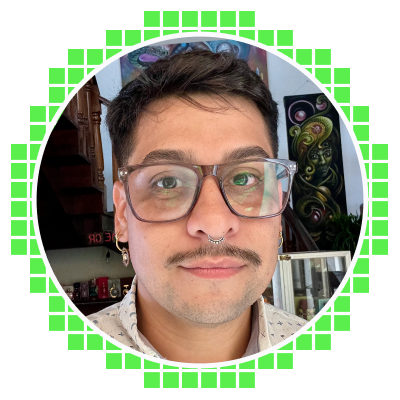What I Learned Over the Last 413 Hours of Programming
Personal reflections and hard-earned lessons from a year of intensive coding, hitting #1 on Costa Rica's Wakatime leaderboard, and what really matters beyond the metrics.

Reading Mode
Font Size
Line Spacing
A recent period of intense focus saw me log just over 413 hours in my code editor over the last year. This effort culminated in a personal milestone—hitting #1 on the Wakatime leaderboards for Costa Rica—but the feeling was fleeting. The real value wasn’t the rank, but the lessons that crystallized during that time.
To give some background, I’ve been tinkering with tech for as long as I can remember. In my early 20s, I started to dabble in web development, using any excuse to get in front of a computer. I’d see what other developers were creating and honestly thought I could never turn this hobby into a career. Fast forward almost two decades, and I’m leading projects for my own clients, running a business, and still finding any spare minute to design, deploy, and problem-solve.
I lead with this because I am by no means an authority on development. There are days when even entry-level issues have me scratching my head. These are simply the lessons that have become second nature and helped me build a rhythm for managing my “work-work” balance—because yes, I still have that day job to contend with.
1. Grant Yourself Grace
So much of the professional world revolves around fast-paced environments and buzzwords. One of the best things I’ve done for my own growth is to consciously ignore that pressure and focus on the simple joy of building something. Acknowledging that I will never know everything in programming is liberating. It means we are all on a similar path. While I might be struggling to get a Kubernetes instance running, a senior developer somewhere else might be stuck trying to install basic software. This mindset doesn’t make the challenges any less complex, but it keeps me from being my own worst enemy.
2. Find Your Community
We live in an online world, but finding like-minded people makes all the difference. So much of what I do can feel isolating. How do I explain to my mom that I can’t figure out why my Docker SQL container is rejecting a connection because of a random Laravel SSL error that crept up at 2 in the morning? Having friends I can see in person who understand that feeling, and online communities I can turn to for advice, makes the climb up the mountain that much easier.
3. Don’t Over-complicate Your Tooling
There is an infinite number of tools trying to solve any single problem. I remember constantly swapping out my toolkit because of a compelling article or a slick advertisement. As many senior developers know, the tools you have are often powerful enough—it’s just a matter of reading the documentation and putting it into practice. My current stack is simple: Zed as my code editor, Lazygit for git management, Lazydocker for Docker, and the GitHub CLI for my project board. It’s what works for us now.
4. Documentation Actually Matters
This should be a no-brainer, but it’s a lesson I had to learn the hard way. I used to have a “Rambo” approach, diving into a new tool without any preparation. That mistake has cost me countless hours of needless headaches over my career. I’m happy to say it’s a habit I’ve finally kicked. Read the docs!
5. Diversify Your Skill Set
When I first started, I wanted nothing to do with design, databases, or negotiations. Now, at 37, I find myself doing all of these things. The tech world often pushes over-specialization, but having a diverse set of skills is invaluable. In my case, it helps me plan implementation strategies and gives me the foresight to see what challenges might be just around the corner.
6. Trust Your Proven Stack
Developing the confidence to form my own opinions on my work has been crucial. Online, we are always hearing about the next great thing. But for me, it’s vital to stick to the frameworks and libraries that I know best, because I’m the one supporting these sites long-term. My rule of thumb is to stick to what we know: Docker, TailwindCSS, Astro, and Laravel. When I think about it critically, I can’t find a technical gap in our current stack that justifies the time to learn, train, and implement the shiny new thing.
The Code is Just the Beginning
When I reflect on those 413 hours, I realize they represent just a fraction of the real work. What the time tracker doesn’t see are the countless hours spent in meetings, writing emails, troubleshooting live systems, and navigating client relationships. The reality of this work is that it’s rarely just about the site; it’s about the domains, hosting, DNS, SEO, design, and a dozen other things that go into bringing a product to market. In many ways, the programming is the easy part—the calm moment when everything is working in unison and I can just type.
This web of complex, human-centric problem-solving is what the metrics can’t capture. It’s also why I’m skeptical when we’re bombarded with news of how AI will take our jobs. Time and again, I find myself in situations that require strategy, empathy, and experience—qualities you can’t yet pay for with a monthly subscription. I don’t doubt the future will be different, but for now, I look forward to another 400+ hours of this passion.
Thanks for reading, and happy programming!
Related Articles
Development
Are We Racing to the Middle? A Developer's Take on AI
A reflection on the rise of AI in development, the rush for efficiency, and the importance of maintaining standards, deep understanding, and personal growth in a rapidly changing industry.

Lorenzo Villalobos
Owner & SR. Developer